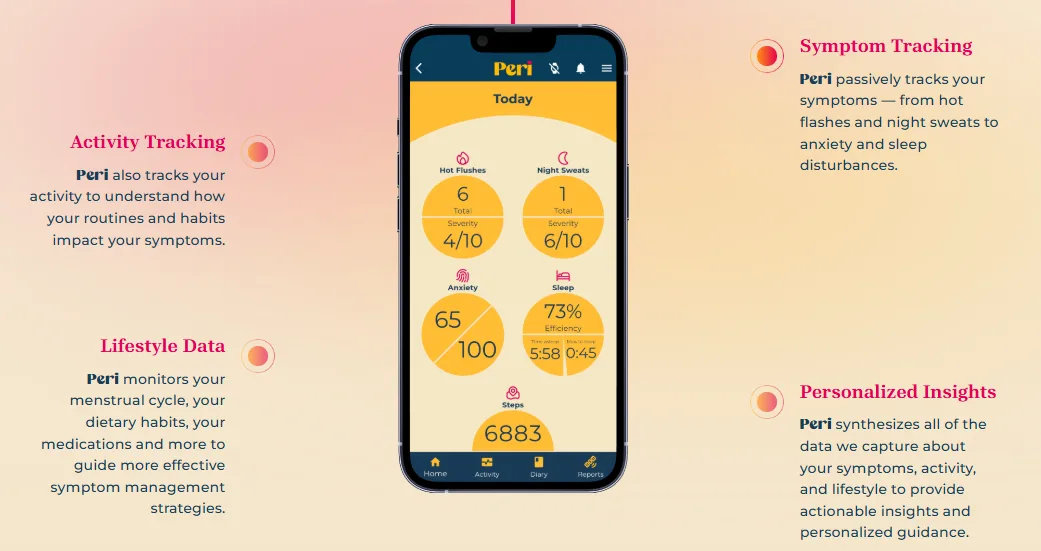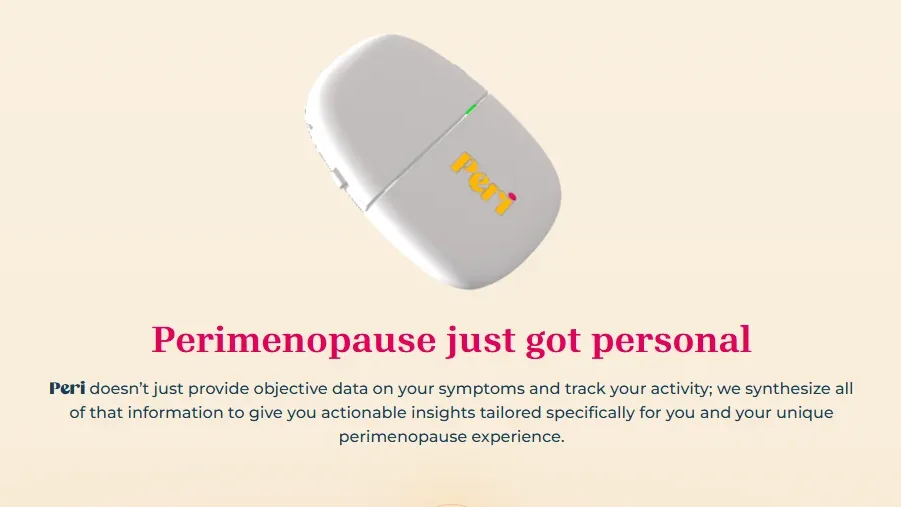The Article Tells The Story of:
- PERI A new wearable for women, Peri, targets perimenopause symptoms.
- Unlike other devices, it focuses on women’s reproductive health.
- CES 2025 Innovation Award highlights its potential.
- But does it truly work? Here’s what we know so far.
Peri: A Smart Solution for Women’s Reproductive Health
The Peri wearable for Women, introduced at CES 2025 by the startup identifyHer, has sparked significant interest for its focus on women’s reproductive health. Specifically designed for women in the perimenopause stage, this innovative device aims to fill a gap left by popular wearables like the Apple Watch, which primarily track general health parameters.
Check Out Latest Article of CES 2025: A Game-Changing Tech Showcase Awaits in Las Vegas Published on January 6, 2025, SquaredTech

Perimenopause refers to the transitional phase before menopause, during which the ovaries gradually lose function, impacting key hormones like estrogen and progesterone. This hormonal shift can lead to symptoms such as anxiety, sleep disturbances, hot flashes, and brain fog. These symptoms often disrupt daily life, affecting work, relationships, and overall well-being.
Existing wearables, while offering period tracking and fertility window insights, fail to address the broader spectrum of reproductive health. Peri, designed to be worn on the torso, seeks to monitor these symptoms more accurately, offering actionable insights through its paired smartphone app. This could potentially help women understand and manage their perimenopause symptoms more effectively.
The Technology Behind Peri Wearable for Women

Peri’s development involved three years of research and development, during which the company identified unique “digital fingerprints” associated with perimenopause symptoms. These fingerprints are monitored through algorithms that track specific symptoms like hot flashes, night sweats, and anxiety.
While the company has kept details of the sensors confidential, cofounder Heidi Davis revealed that the technology relies on existing sensor components. The breakthrough lies in the proprietary algorithms, not the hardware itself. Unlike wrist-based devices, Peri’s design accounts for the limitations of wrist wearables in detecting perimenopause-specific patterns, necessitating its placement on the torso.
Challenges and Future Prospects
Despite its promising concept, Peri faces practical challenges. The device’s pill-shaped design, combined with its use of replaceable batteries, raises questions about comfort and usability. Critics have noted potential discomfort during sleep or extended wear. However, its innovative approach to tracking perimenopause symptoms could pave the way for future advancements in wearables for women’s health.
Peri is expected to launch this summer, though the price remains undisclosed. As it enters the market, the effectiveness of its tracking capabilities and user experience will determine its success. For now, Peri’s CES 2025 Innovation Award underscores its potential to address a long-overlooked aspect of health tech.
Stay Updated: Tech News


